Actions speak louder than words - Russia talks a big game about being threatened by NATO, but when it comes down to it?
Russian invasion of Ukraine imminent, BBC reports
- Thread starter Skym
- Start date
You are using an out of date browser. It may not display this or other websites correctly.
You should upgrade or use an alternative browser.
You should upgrade or use an alternative browser.
Russia is struggling to annex Ukraine. But China is annexing Russia pretty effortlessly.
===========
Vladimir Putin’s bungled invasion of Ukraine has damaged his political standing at home and weakened Russia’s position abroad.
One telltale sign was the summit shenanigans at a meeting of the Shanghai Cooperation Organisation’s leaders last week. A notoriously petty Putin power play was turned against him.
Russian dictator often made foreign leaders suffer the humiliation of an extended wait before arriving for scheduled summits. For instance, he once kept Donald Trump waiting for 45 minutes and India’s Narendra Modi for 50. He routinely kept Ukrainian leaders waiting three or four hours. But the record was when he made German Chancellor Angela Merkel suffer an insufferable 4¼ hours.
So there was notable schadenfreude last week when four nations’ leaders made Putin wait. Modi took his opportunity to drive home Putin’s downgrading in the international order, and so did the leaders of Turkey, Azerbaijan and Kyrgyzstan.
“Putin used to make everyone wait,” observed a Ukrainian government adviser, Anton Gerashchenko. “Now he is the one waiting awkwardly. Times changed".
At home in Moscow, too, Putin’s strongman standing has been hammered down a couple of notches. After being whipped into a nationalist frenzy in support of the invasion, nationalist hardliners now are furious at Russia’s battlefield setbacks and demand a total Russian mobilisation.
Putin is “politically encircled in Moscow”, according to Ivan Krastev, chair of the Centre for Liberal Strategies in Bulgaria. The word “war” has broken into state-owned media in violation of the Kremlin’s insistence that the invasion was merely a “special military operation” and Krastev explains the potency of this change:
“A ‘special military operation’ is something to be cheered, while war is something to be feared,” he writes in the Financial Times. Special operations are “conflicts which can be lost without a population really noticing. But when you lose a war you risk losing your country".
And Putin his power. His dilemma is that he needs to demonstrate battlefield success but does not want full mobilisation. Why not? “For the same reason that he was reluctant to impose mandatory vaccination during the COVID pandemic: the fear that such a move would expose his lack of control,” if Russians refuse en masse, says Krastev.
And Russia’s economy is labouring under the heaviest sanctions it has faced since the Cold War. It has not collapsed in the way that some analysts predicted at the outset of the war in February, but the impact has been real, harmful and compounding.
The sanctions have imposed a recession that will shrink Russia’s economy by six per cent this year, according to the IMF. That’s painful but not disastrous. The main reason it’s unexpectedly mild?
While the International Energy Agency forecast Moscow would suffer a loss of three million barrels of oil exports a day under the West’s sanctions, Russian oil has continued to sell well. Because while the West largely has shunned it, China and India have shopped for it.
China’s imports of seaborne Russian Urals crude oil have boomed by 40 per cent between January and July, according to commodities consultancy Kpler. Beijing also has stepped up imports through a Siberian pipeline.
The outflow of Russian oil brings the renminbi inflow that keeps Putin’s regime afloat. This has allowed Putin to increase pensions and the minimum wage by 10 per cent, among other stimulatory state spending.
In short, as Russia staggers, China is holding it up. Overall, total Russian exports to China have burgeoned by 49 per cent between January and July to $US61.4 billion.
Analysts who describe China’s policy on the Russian invasion of Ukraine as “balanced” or “noncommittal” are overlooking Beijing’s indispensable economic underwriting of Russia’s war.
Russia’s fiscal solvency now depends on a lifeline from China, an economy 10 times bigger than Russia’s. But for Beijing, trade with Russia is peripheral – amounting to just 2 per cent of China’s total trade with the world in 2021.
Xi Jinping’s regime also supports the Russian war effort indirectly by exporting off-road vehicles for transporting command personnel, as well as drone components and naval engines, as Thomas Low and Peter W. Singer point out in a piece on the US site Defense One.
“Rather than making Russia great again,” they write, “Putin’s war in Ukraine has instead deepened Russia’s position as the clear junior partner in the Sino-Russian relationship, militarily and economically.
”Even the most recent rhetoric between the two leaders reveals the power shift. The readouts from Putin’s meeting with Xi at the Shanghai Cooperation group meeting last week “make the relationship look unbalanced, in Xi and the PRC’s favour,” remarks the US sinologist Bill Bishop in his Sinocism newsletter.
Putin publicly tugs his forelock to Xi’s “questions and your concerns” over the Ukraine war. And, in Bishop’s words, “while Putin genuflects about Taiwan and the one-China principle”, Xi offers “strong mutual support on issues concerning each other’s core interests” but no specific commitments on anything at all.
The US journal Foreign Affairs last month published an essay titled: “China’s New Vassal”. The author, Alexander Gabuev of the Carnegie Endowment think tank, wrote: “Theirs is not a relationship of equals. The Kremlin’s dependence on China will turn Russia into a useful instrument in a larger game for Zhongnanhai [the walled leadership compound in Beijing], a tremendous asset in Beijing’s competition with Washington. ”When Xi formally is endorsed by the Chinese Communist Party Congress next month to serve a third five-year term as general secretary, he will not only become the first Chinese leader since Mao to serve a third term. He will be holding Russia, once China’s tutor, now its vassal, as a trophy.
This is an undreamt-of asset for Beijing, one that only Putin’s misjudgement could have delivered.
===========
Vladimir Putin’s bungled invasion of Ukraine has damaged his political standing at home and weakened Russia’s position abroad.
One telltale sign was the summit shenanigans at a meeting of the Shanghai Cooperation Organisation’s leaders last week. A notoriously petty Putin power play was turned against him.
Russian dictator often made foreign leaders suffer the humiliation of an extended wait before arriving for scheduled summits. For instance, he once kept Donald Trump waiting for 45 minutes and India’s Narendra Modi for 50. He routinely kept Ukrainian leaders waiting three or four hours. But the record was when he made German Chancellor Angela Merkel suffer an insufferable 4¼ hours.
So there was notable schadenfreude last week when four nations’ leaders made Putin wait. Modi took his opportunity to drive home Putin’s downgrading in the international order, and so did the leaders of Turkey, Azerbaijan and Kyrgyzstan.
“Putin used to make everyone wait,” observed a Ukrainian government adviser, Anton Gerashchenko. “Now he is the one waiting awkwardly. Times changed".
At home in Moscow, too, Putin’s strongman standing has been hammered down a couple of notches. After being whipped into a nationalist frenzy in support of the invasion, nationalist hardliners now are furious at Russia’s battlefield setbacks and demand a total Russian mobilisation.
Putin is “politically encircled in Moscow”, according to Ivan Krastev, chair of the Centre for Liberal Strategies in Bulgaria. The word “war” has broken into state-owned media in violation of the Kremlin’s insistence that the invasion was merely a “special military operation” and Krastev explains the potency of this change:
“A ‘special military operation’ is something to be cheered, while war is something to be feared,” he writes in the Financial Times. Special operations are “conflicts which can be lost without a population really noticing. But when you lose a war you risk losing your country".
And Putin his power. His dilemma is that he needs to demonstrate battlefield success but does not want full mobilisation. Why not? “For the same reason that he was reluctant to impose mandatory vaccination during the COVID pandemic: the fear that such a move would expose his lack of control,” if Russians refuse en masse, says Krastev.
And Russia’s economy is labouring under the heaviest sanctions it has faced since the Cold War. It has not collapsed in the way that some analysts predicted at the outset of the war in February, but the impact has been real, harmful and compounding.
The sanctions have imposed a recession that will shrink Russia’s economy by six per cent this year, according to the IMF. That’s painful but not disastrous. The main reason it’s unexpectedly mild?
While the International Energy Agency forecast Moscow would suffer a loss of three million barrels of oil exports a day under the West’s sanctions, Russian oil has continued to sell well. Because while the West largely has shunned it, China and India have shopped for it.
China’s imports of seaborne Russian Urals crude oil have boomed by 40 per cent between January and July, according to commodities consultancy Kpler. Beijing also has stepped up imports through a Siberian pipeline.
The outflow of Russian oil brings the renminbi inflow that keeps Putin’s regime afloat. This has allowed Putin to increase pensions and the minimum wage by 10 per cent, among other stimulatory state spending.
In short, as Russia staggers, China is holding it up. Overall, total Russian exports to China have burgeoned by 49 per cent between January and July to $US61.4 billion.
Analysts who describe China’s policy on the Russian invasion of Ukraine as “balanced” or “noncommittal” are overlooking Beijing’s indispensable economic underwriting of Russia’s war.
Russia’s fiscal solvency now depends on a lifeline from China, an economy 10 times bigger than Russia’s. But for Beijing, trade with Russia is peripheral – amounting to just 2 per cent of China’s total trade with the world in 2021.
Xi Jinping’s regime also supports the Russian war effort indirectly by exporting off-road vehicles for transporting command personnel, as well as drone components and naval engines, as Thomas Low and Peter W. Singer point out in a piece on the US site Defense One.
“Rather than making Russia great again,” they write, “Putin’s war in Ukraine has instead deepened Russia’s position as the clear junior partner in the Sino-Russian relationship, militarily and economically.
”Even the most recent rhetoric between the two leaders reveals the power shift. The readouts from Putin’s meeting with Xi at the Shanghai Cooperation group meeting last week “make the relationship look unbalanced, in Xi and the PRC’s favour,” remarks the US sinologist Bill Bishop in his Sinocism newsletter.
Putin publicly tugs his forelock to Xi’s “questions and your concerns” over the Ukraine war. And, in Bishop’s words, “while Putin genuflects about Taiwan and the one-China principle”, Xi offers “strong mutual support on issues concerning each other’s core interests” but no specific commitments on anything at all.
The US journal Foreign Affairs last month published an essay titled: “China’s New Vassal”. The author, Alexander Gabuev of the Carnegie Endowment think tank, wrote: “Theirs is not a relationship of equals. The Kremlin’s dependence on China will turn Russia into a useful instrument in a larger game for Zhongnanhai [the walled leadership compound in Beijing], a tremendous asset in Beijing’s competition with Washington. ”When Xi formally is endorsed by the Chinese Communist Party Congress next month to serve a third five-year term as general secretary, he will not only become the first Chinese leader since Mao to serve a third term. He will be holding Russia, once China’s tutor, now its vassal, as a trophy.
This is an undreamt-of asset for Beijing, one that only Putin’s misjudgement could have delivered.
Last edited:
Putin threatens to use nuclear weapons as he escalates his invasion of Ukraine: 'This is not a bluff'
Putin ordered the draft of reservists for his invasion of Ukraine in a speech where he also threatened the use of nuclear weapons.
Russian President Vladimir Putin threatened the use of nuclear weapons as he ramped up his invasion of Ukraine.
Putin announced the partial mobilization of his country's reservists in a speech on Wednesday, when he also baselessly accused the West of threatening to use nuclear weapons and gestured to Russia's own nuclear arsenal.
Putin accused the West of "nuclear blackmail," saying Western nations had encouraged Ukraine to shell the Russian-controlled Zaporizhzhia nuclear power plant in Ukraine. Ukraine said Russia was responsible for the Zaporizhzhia shelling.
He also said that officials in NATO countries had spoken "about the possibility and admissibility of using weapons of mass destruction against Russia — nuclear weapons."
Putin is a murder, killer, crazy etc...
'How to Break Arm' Becomes Top Google Trend as Russians Face Conscription (msn.com)
Search requests for how to break limbs 'painlessly' trend after Putin’s ‘mobilization’ announcement (msn.com)
Maybe Russia's next army will be already "Prepared" with casts and crutches heading to war...
Search requests for how to break limbs 'painlessly' trend after Putin’s ‘mobilization’ announcement (msn.com)
Maybe Russia's next army will be already "Prepared" with casts and crutches heading to war...
Last edited:
It's called conscription, baby. My great Grandfather was a Polish citizen who was conscripted into the Russian army in the early 20th Century. If you wonder why there is a latent hatred of Russia by Poland, this is one reason why. Of course, Russia cannot conscript Poles any more but they can certainly conscript able bodied Russian citizens.
In terms of being able bodied: Putin will declare it an act of treason for anyone to attempt to avoid conscription by harming or dismembering oneself. Punishable by death sentence. So forget about it. Do you really think Putin is this stupid? It's probably already the law.
Fleeing Russia seems like the best and safest alternative, but I am sure the borders are now tightened up making this very difficult.
In terms of being able bodied: Putin will declare it an act of treason for anyone to attempt to avoid conscription by harming or dismembering oneself. Punishable by death sentence. So forget about it. Do you really think Putin is this stupid? It's probably already the law.
Fleeing Russia seems like the best and safest alternative, but I am sure the borders are now tightened up making this very difficult.
Semblerait que beaucoup de jeunes hommes Russes s'envolent vers d'autres cieux /quittent la Russie craignant d'être recrutés pour le combat ...et voyant que des milliers de leurs militaires y ont laissé leur vie.....on peut les comprendre...ne veulent pas risquer
leur vie dans une guerre inutile engagée par un infame psychopate.
leur vie dans une guerre inutile engagée par un infame psychopate.
It's called conscription, baby.
Russian mobilisation triggers frantic search for flights—'Destination anywhere' (msn.com)
Russian Rail Website Crashes After Putin's Mobilization Decree (newsweek.com)
Hey EB Baby...
I'm pretty much aware of the Russians antics, wars, occupations, 'Taking care' of his people who don't follow his orders... etc etc
The Russians had all of Eastern Europe (Warsaw Pact) armies of non-Russians defending Russia with that buffer zone of Eastern Europe, now that that option is gone he has to find Russians doing the dirty work, even mercenaries, prisoners, ??? you gotta be kidding me.
Me was just pointing up the panic this guy is creating with his own Russian population.
In a televised address, Russian President Vladimir Putin said a partial mobilization would be necessary for the next phase of its war with Ukraine.
He also accused the West of engaging in 'nuclear blackmail.'
In a televised address, Russian President Vladimir Putin said a partial mobilization would be necessary for the next phase of its war with Ukraine.
He also accused the West of engaging in 'nuclear blackmail.'
More lies from the King of Lies himself.
Back in February, he threatened "consequences they have never seen"

Putin signals escalation as he puts Russia’s nuclear force on high alert
Deterrence order given as Zelenskiy says Ukraine delegation will meet Russian officials at Belarus border
Then 3 months later... https://www.wilsoncenter.org/articl...war-dangers-delicate-balance-terror-revisited
Over 1,000 Detained In Anti-War Protests in Russia:
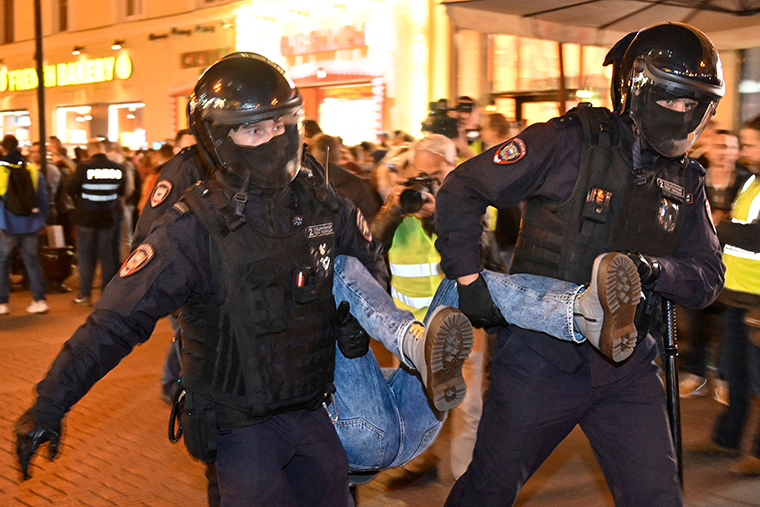
 www.cnn.com
Get set for some Martial Law action very soon!
www.cnn.com
Get set for some Martial Law action very soon!

Hundreds have been detained across Russia in a crackdown on anti-war protests
Russian President Vladimir Putin announced a partial mobilization after multiple Kremlin-backed authorities in occupied Ukraine said they would hold referendums this week on joining Russia. Follow here for the latest.
Also, why does Putin need 300,000 men? Haven't the Russian casualties been limited to only about 5,000 men?
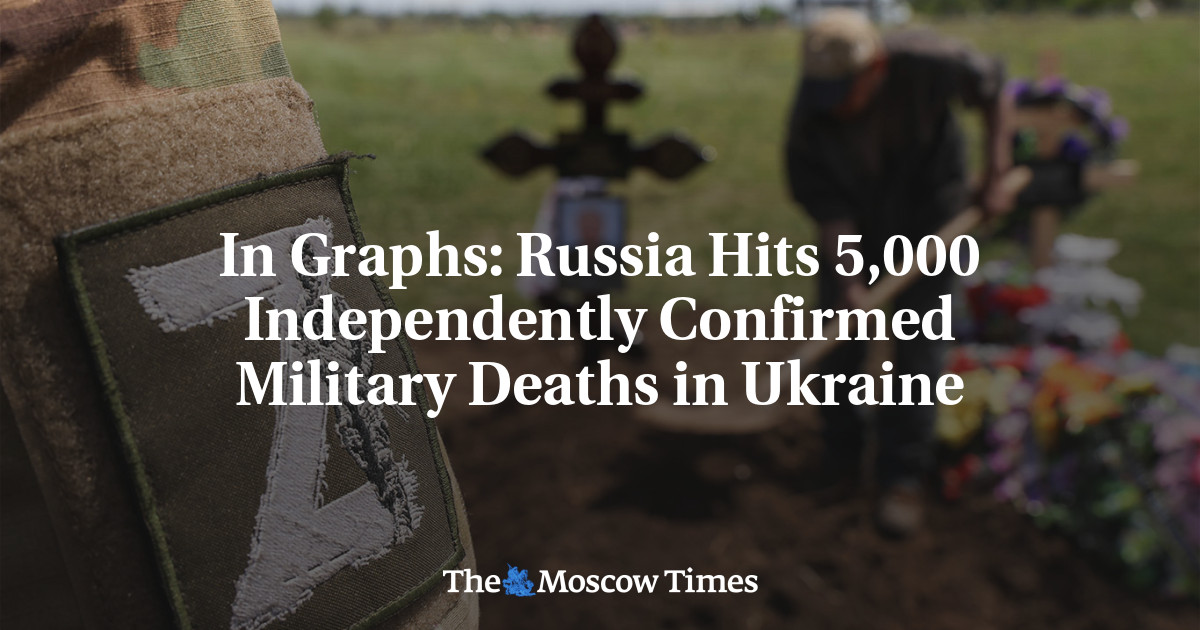
 www.themoscowtimes.com
www.themoscowtimes.com

In Graphs: Russia Hits 5,000 Independently Confirmed Military Deaths in Ukraine - The Moscow Times
More than 5,000 Russian soldiers have been killed in Ukraine since the start of the invasion, according to a tally of confirmed deaths updated this week by independent Russian media outlet iStories.
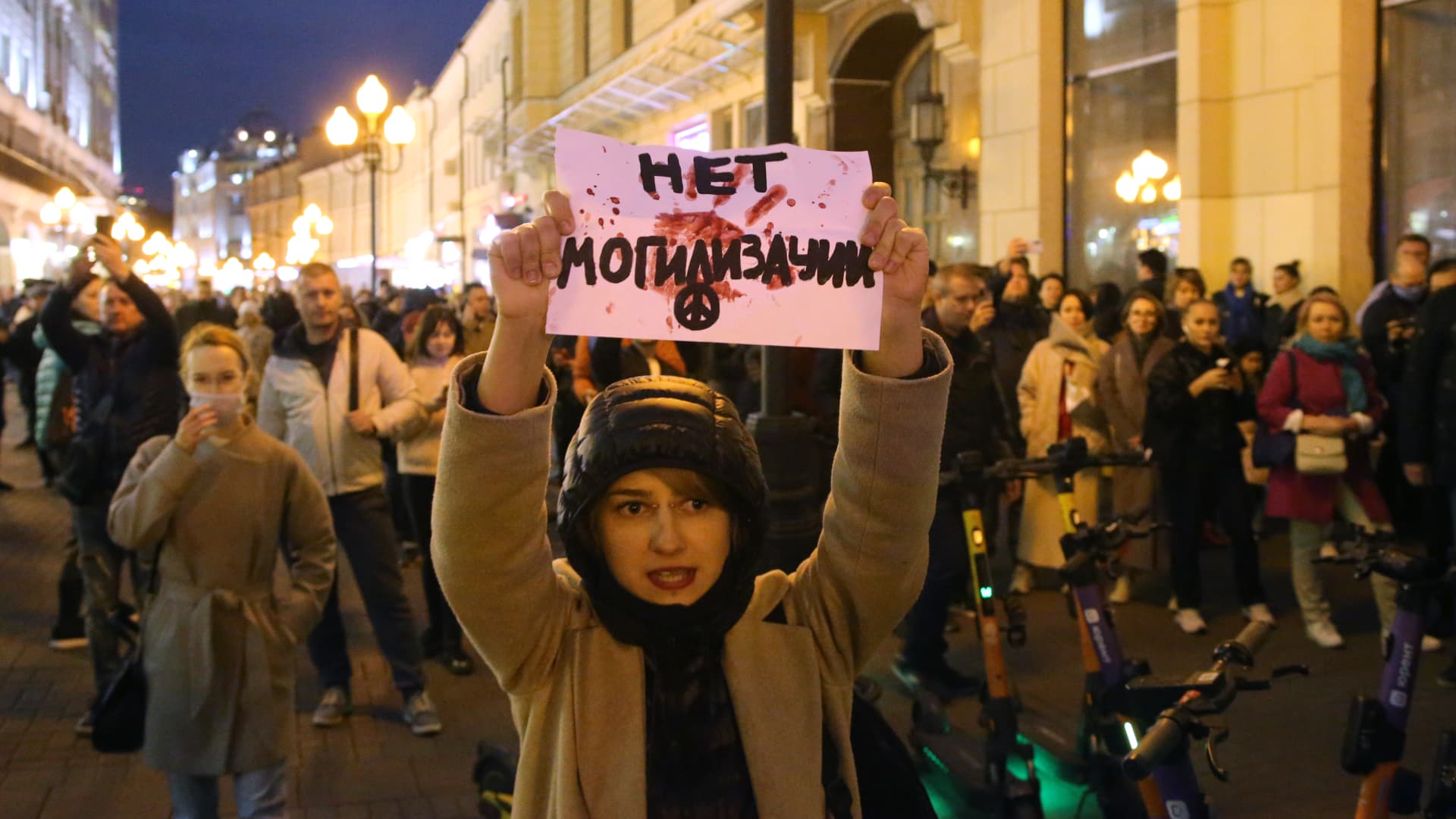
Russia arrests over 1,300 as anti-war protests erupt over Putin's partial military call-up
Around 1,307 people were detained in 39 cities across Russia as of Thursday morning, according to independent human rights group OVD-Info.
More than 1,300 people have been arrested in Russia following President Vladimir Putin’s call-up of extra forces to fight in Ukraine, according to independent human rights group OVD-Info.
Around 1,307 people were reportedly detained in 39 cities across the country as of Thursday morning, with the largest numbers arrested in the capital city of Moscow (at least 527) and St. Petersburg (at least 480).
Nearly 50 people were arrested in the country’s fourth-largest city of Yekaterinburg, while dozens were also detained in several Siberian cities.
Prices of one-way flights out of Russia surged after Putin’s announcement and images on social media appeared to show long queues at border posts.
Putin on Wednesday delivered a rare prerecorded televised address to order a partial militarization of reservists to bolster forces in Ukraine, a deeply unpopular move that sparked nationwide protests despite Russia’s harsh laws against criticizing the military and the war in Ukraine.
Russia has not yet declared war on Ukraine, despite having invaded in February, and it calls its invasion a “special military operation.”
Russian Defense Minister Sergei Shoigu said the mobilization of troops would see 300,000 additional personnel called up to serve in the military campaign in Ukraine.
Not a good look for Russia when even North Korea is washing their hands
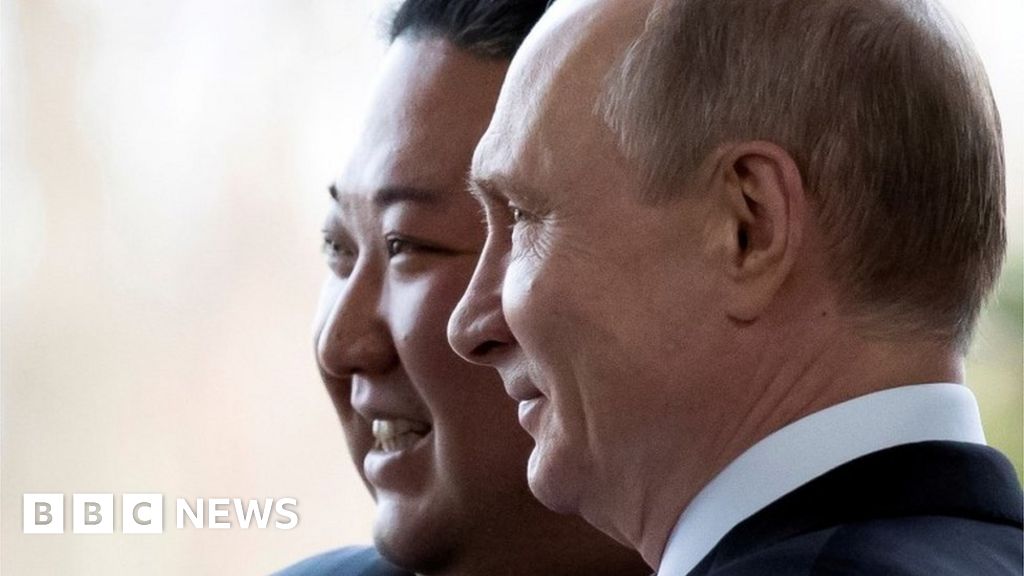
 www.bbc.com
www.bbc.com

North Korea denies supplying weapons to Russia
The statement comes after the US said Moscow could purchase "millions" of munitions from Pyongyang.
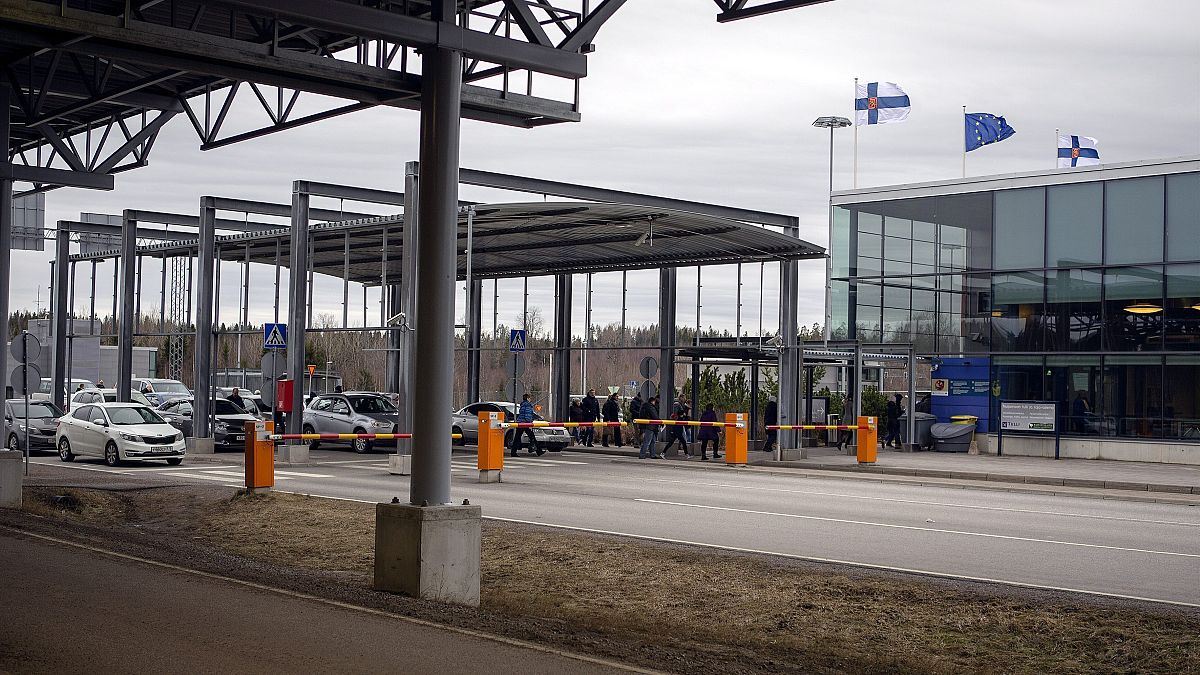
Debunked: Russians were not in a 35km queue at Finland border
Some users on social media falsely claimed that Russians were in queues as long as 35 kilometres at the Finland border, following Putin's speech. #TheCube
President Vladimir Putin's order of a "partial" military mobilisation has prompted some Russians to protest on the streets.
Others have fled, fearing they could be called up to serve in Ukraine.
One-way flights to nearby countries have now sold out, while Google recorded a spike of people searching for ways to leave Russia.
Since Monday, Russian citizens can only enter the European Union via the 1,340-kilometre border with Finland. Unlike the Baltic nations and Poland, Finland has not completely restricted the entry of Russian tourists with Schengen visas.
Putin's speech prompted misleading rumours that some Russians had joined lengthy queues at Finland’s southeastern border on Wednesday night, hoping to leave the country.
1300 manifestants arrêtés....des centaines/milliers font la file en direction de la Géorgie et de la Finlande pour fuir la mobilisation.....et beaucoup d'autres paient le gros prix pour quitter vers d'autres pays....la tension monte de l'intérieur et le tyran doit commencer
à sentir la soupe bouillante dans son propre pays....doit se sentir de plus en plus isolé..
à sentir la soupe bouillante dans son propre pays....doit se sentir de plus en plus isolé..
There are some reports that those arrested were immediately conscripted and sent to the front lines in Ukraine. This serves the dual purpose of throwing some fresh bodies into the fight while harshly discouraging further protests.More than 1,300 people have been arrested in Russia following President Vladimir Putin’s call-up of extra forces to fight in Ukraine, according to independent human rights group OVD-Info.
See the below report- those arrested for protesting the war have a choice of going to the Ukrainian front lines to fight for Russia, or serve 15 years in prison for treason:There are some reports that those arrested were immediately conscripted and sent to the front lines in Ukraine. This serves the dual purpose of throwing some fresh bodies into the fight while harshly discouraging further protests.
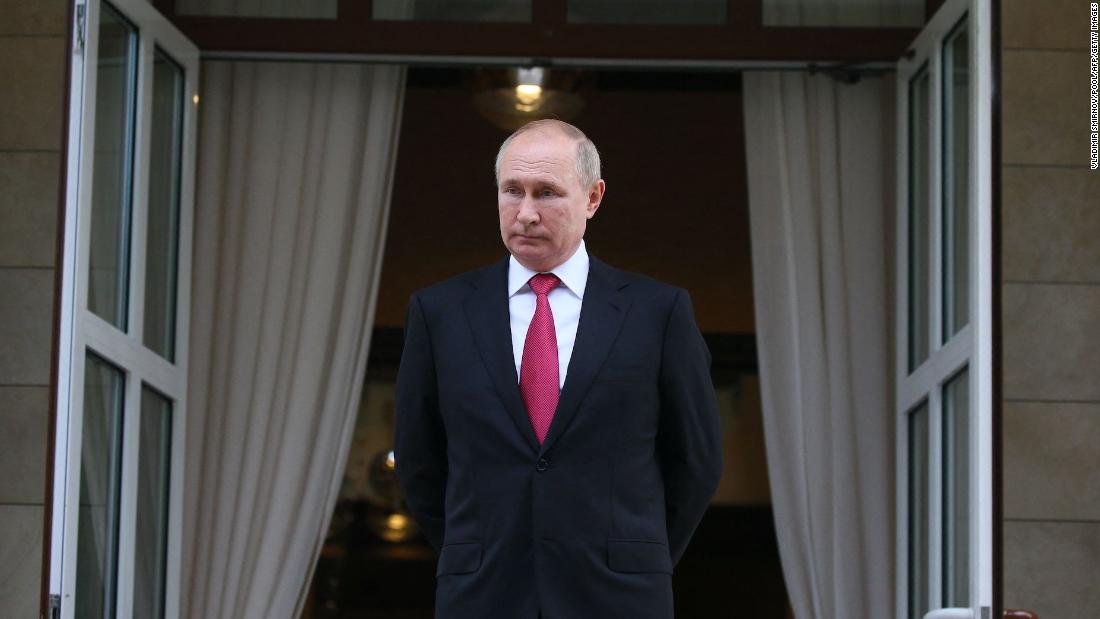
Analysis: Reports of Putin's problems are mounting
The reports out of Russia suggest a military and a leader in desperate need. As world leaders gathered at the United Nations in New York and condemned him, Russian President Vladimir Putin was back home, scrambling to refill his depleted war machine.
In Putin's Russia, some Russians are more equal than the others:
/cloudfront-us-east-2.images.arcpublishing.com/reuters/Q7MXYYWNKVP5RO3OSK4BGUL6AY.jpg)
 www.reuters.com
www.reuters.com
/cloudfront-us-east-2.images.arcpublishing.com/reuters/Q7MXYYWNKVP5RO3OSK4BGUL6AY.jpg)
Russia's mobilization hits hard in poor, rural Buryatia
A day after Russian President Vladimir to boost the armies fighting in Ukraine, officials arrived at Alexander Bezdorozhny's house with draft papers ordering him to present himself for service.

Russian Anti-Mobilization Protests Broken Up, Over 700 Arrested
Russian police have dispersed peaceful protests against President Vladimir Putin's military mobilization order, arresting hundreds of people in more than 30 cities across the country.
 www.rferl.org
www.rferl.org
Russian police have dispersed peaceful protests against President Vladimir Putin's military mobilization order, arresting hundreds of people in more than 30 cities across the country.
Police detained more than 700 people on September 24, including over 300 in Moscow, according to OVD-Info, a human rights group that monitors political arrests in Russia. Some of those arrested were minors, it said.
The demonstrations followed protests that erupted within hours after Putin on September 21 issued the partial-mobilization order, which was designed to bolster Russia's forces in Ukraine following heavy losses during a recent Ukrainian counteroffensive.
Similar threads
- Replies
- 3
- Views
- 287
- Poll
- Replies
- 11
- Views
- 814
- Replies
- 67
- Views
- 3K
- Replies
- 7
- Views
- 1K






